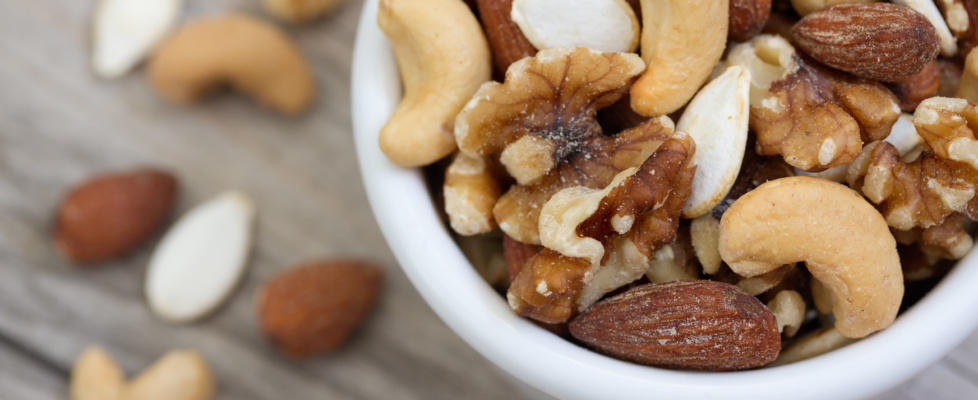How Many Nuts Should I Eat?
Nuts are a nutrient-rich, cardio-protective food source that contains heart healthy nutrients such as unsaturated fats, dietary fiber, protein, vitamin E, potassium, and phytosterols. Consuming nuts in moderation as part of a balanced diet has been linked to many health benefits.
Studies suggest that regular consumption of nuts may reduce inflammation, minimize swings in blood sugar, aid in weight management, and may even help in weight loss. Nuts are a rich source of the heart-healthy monounsaturated and polyunsaturated fats which studies suggest may lower LDL, or “bad” cholesterol. Additionally, nuts contain phytosterols which have also been linked to lowering LDL blood cholesterol. Studies suggest that regular nut consumption is unlikely to contribute to obesity and may even help in weight loss.
Nuts can be a hardy nutrient dense snack that packs a powerful punch of satisfying healthy protein and fat. However be mindful of portions because the calories from nuts (9 calories per gram) can add up quickly! Aim for raw or dry-roasted, and look for unsalted, no added sugar varieties. For optimal health, aim for 1 serving of nuts about five times per week.
NUTRIENT CONTENTS OF COMMON NUTS:1 serving size = 1 ounce (¼ cup, or cupped hand) |
| NUT (raw) | AMOUNT (1 oz) | CALORIES | FAT (g) | PROTEIN (g) |
| Almonds | 23 | 164 | 14 | 6 |
| Pistachios | 49 | 159 | 13 | 6 |
| Cashews | 18 | 157 | 12 | 5 |
| Peanuts | 28 | 161 | 14 | 7 |
| Pecans | 19 halves | 196 | 20 | 3 |
| Walnuts, english | 14 halves | 185 | 18 | 4 |
| Brazil nuts | 6 | 187 | 19 | 4 |
| Hazelnuts | 21 | 178 | 17 | 4 |
| Macadamia nuts | 12 | 204 | 21 | 2 |
*Nutrition information based on the USDA’s National Nutrient Database for Standard Reference.
Looking for a balanced heart healthy snack, try pairing a handful of nuts with a small piece of fruit like an apple, banana, or an orange. For more snack ideas, check out these 5 Healthy Snacks Under 150 Calories!
Sources:
- Health Benefits of Nut Consumption
- The Traditional and Emerging Role of Nuts in Healthful Diets
- Nuts as a Replacement for Carbohydrates in the Diabetic Diet
- Walnut-enriched diet increases the association of LDL from hypercholesterolemic men with human HepG2 cells
- Phytosterols and cholesterol metabolism.
- Regular Consumption of Nuts Is Associated with a Lower Risk of Cardiovascular Disease in Women with Type 2 Diabetes
- Lowering LDL-cholesterol through diet: potential role in the statin era
